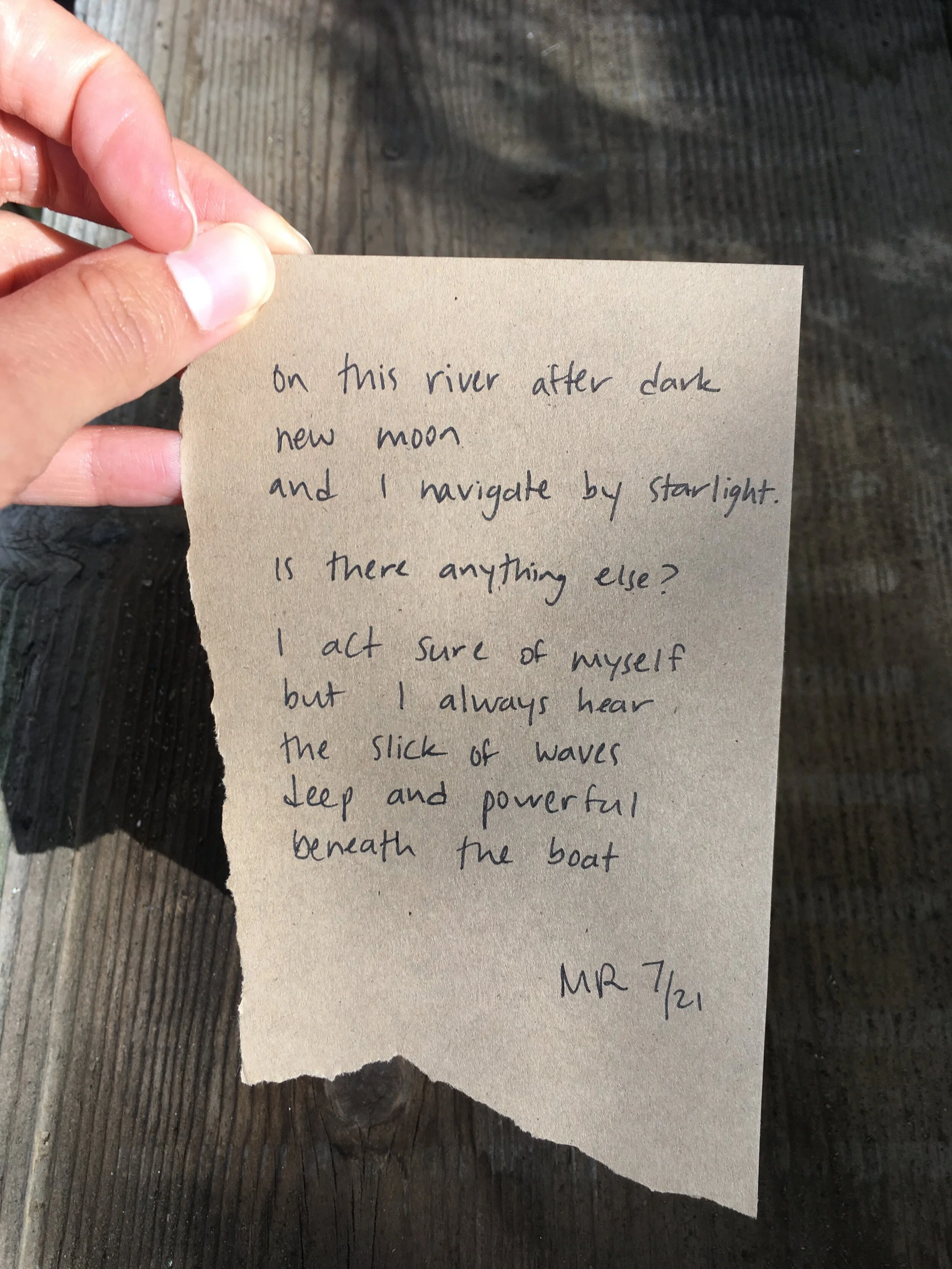
East End Rec
The East End Recreation Center, or East Rec for short, sits on a city block directly east of the Basilica of St. Stanislaus Kostka. The block is divided roughly into quarters, with a small park on the northeast side, a community garden on the southeast side, basketball courts on the southwest side, and the blue and white recreation center itself on the northwest corner. One block away from busy Broadway, the streets around the East Rec are relatively quiet most of the time, except for the occasional motorcycle roaring around the block.
Over the years, the East Rec has served as a polling place, a farmers market location, a site for afterschool and summertime activities, a youth drumline practice space, and most recently, a vaccination site. Proms and graduation parties have happened at the Rec, along with sports leagues, Thanksgiving meals, and National Night Out parties. The services at the East Rec have changed to align with needs in the neighborhood, a community garden replacing a skate park, an indoor gym replacing an outdoor skating rink.
In this place, explore change as a neutral and constant presence in our lives and our communities. Explore the possibilities of a space that welcomes everyone—truly everyone—in the community to play, gather, and grow plants.


The East End Rec collection
July 15th, 2021 was hot and steamy, with thunderheads marching down the river valley looking for something to brush against. I set up the poetry booth in the shade of the Rec Center’s precast concrete walls, with a view of the community garden and basketball court to my right, and the small play area in front of me. I forgot my sidewalk chalk, but the walkway through the park was already covered in drawings and names painstakingly scratched there earlier that afternoon. I had several curious kid visitors right away, and a few adults swung by later in the evening. When I look back at my writing from that day, I notice how exhausted I was, and how difficult it felt to write from that feeling. Nevertheless, the following 11 poems emerged, and even now they take me back to late summer and all the fullness it brings.

Poem for what I don’t know
in the garden
sun-soaked and steamy
the ground still breathes
the recent rain
and what I know
isn’t anything
Poem to remember in the winter
In this poem, I imagine eating a sunflower seed in the winter and tracing it back to the sun-baked place it comes from. When I get cold, I’ll come back to this poem.
what shimmers in the seed
of a sunflower
brings you here:
late summer
before the heat wave
before winter’s yawn
before the callus of months—
face of the cauliflower
flame of tomatoes on the vine
chalk-covered sidewalk
grass worn bare by kid-feet
Poem for who really owns a garden
this place belongs
to bees’ wings
and rooted things
they grow
and you grow too,
dear visitor.
every day brings difference.
Poem for collective mourning
Sunflowers are fascinating to me because although they often symbolize joy and give people joy, inevitably their heads get heavy and they drop their faces to the earth.
garden-crowd of sunflowers
heads just beginning to flop
is how I feel when I
have been standing for too long
in the sun
and carry a scent-memory of rain
but it’s been so long
Poem to soothe a tired body
when you are so so tired
remember how a garden grows
silently
a little at a time
and all at once
when you are so so tired
remember how a garden wilts
on hot afternoons
and at night
tosses its shoulders
and draws a deep breath
Poem for artificial boundaries
And what happens when we try to contain growing things.
curb, fence, glass, wall:
what it takes
to maintain separation.
in just a few years
cracks will split open
and green plants
will push aside
will crumble edges
will fill with life
what was empty
Lessons from swallows over the garden
I wrote at the East Rec garden in the evening, and swallows constantly dipped and swooped in and out of the garden. In this poem, I’m exploring how to rub up against rough things, things that are difficult and painful and utterly human, and then let them go.
walk and stop
dance and listen
touch what is rough and prickly
open your hand
let whatever you feel
land there lightly
and take off
with a wingbeat
Poem for an empty cup
Sometimes when there’s something on my mind that I’m desperately trying to ignore or move beyond, it helps to just write it down, be it poetic or not. In this case, I was tired (as you can tell) and feeling kind of silly because my booth wasn’t interesting enough to the kids at the park. But I also wanted to honor the time I set aside to be in the garden and do the work I had come there to do. I ended up in this wide open place with my poem scratching at the door.
I’m tired tired tired
and the fact of this
drowns out just about everything else:
2 corners in view,
kid-chorus at a picnic table
trading summer gossip,
creak of empty swings.
poetry is too boring
poetry is too quiet
and it groans
and it scratches at the door
and sighs long
and heavy
this too is song.
Poem for uncertainty
This poem is inspired by the very real sound of water slipping along under my aluminum canoe, along with the feeling of being out of my depth. Sometimes when we’re just outside what’s comfortable, we find strength we didn’t know existed, but that doesn’t mean it’s not terrifying.
on this river after dark
new moon
and I navigate by starlight.
is there anything else?
I act sure of myself
but I always hear
the slick of waves
deep and powerful
beneath the boat
Poem for the garden
I suppose this is a poem of gratitude to the garden whose air I shared for a few hours in mid-July. It makes me think of the late-evening glow of slanted sunlight on green leaves.
garden in the wider
and stranger valley
garden that twirls here
one revolution at a time
with exuberance so quiet
it’s mistaken for solemnity
garden that spills
over the cinder blocks
garden of a thousand faces
that swivel toward the light
garden supporting
all of these green towers
Poem for shared space
Right, so garden plants aren’t always the best neighbors to each other. Especially when tended with a bit of a hands-off approach. But somehow, in the tangle of leaves and stems and roots and flowers and fruit, they find light and water, and they grow.
garden full to bursting—
everything vining into each other:
tomatillo leans on tomato
which lunges for zucchini
which explodes in a canopy
over carrots, which spread
in a thick mat
to the edge of the bed
they are assured
in their shared space—
what would it take
for us to do the same?
held in undeniable proximity,
seeking the basic ingredients of life?
Prompts from the day
Here are a few invitations to create I shared with passers-by, and used as jumping-off point for my own work. You’re welcome to use them as inspiration for your own visit to the East End Rec!
In one garden, you’ll find baby plants, full-grown plants, and a compost heap. Observe the plants growing all around you, and explore the cycles of growth and decay that make life possible. Explore seasons and the change they bring about.
Make a list of 5-7 things you see or hear, then describe them one by one.
Pull three words out of the word inspiration jar (at the table) or a random page of any book, and write a short poem that includes them. Not sure where to start? Try a haiku, a Japanese poetry form that doesn’t rhyme and contains three lines with 5, 7, and 5 syllables.












